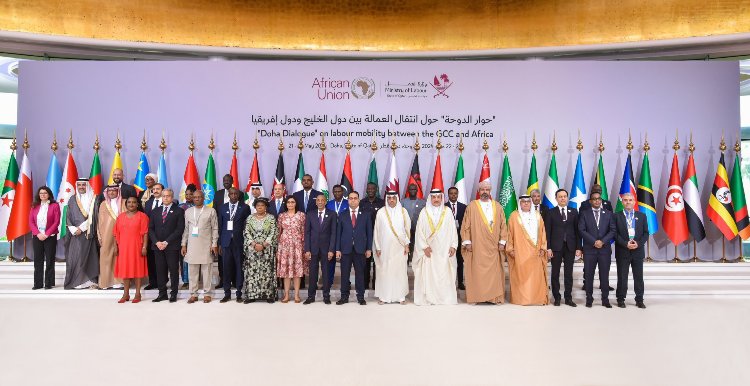ILO Regional Conference Tackles Need for New Social Contract Amid Economic and Technological Transformations
The rise of digital platforms, artificial intelligence (AI), and automation has significantly altered the landscape of work, posing new challenges and opportunities.

The International Labour Organization’s (ILO) Bureau for Workers’ Activities (ACTRAV) recently organized a regional conference focused on redefining the social contract in response to evolving economic, social, and environmental impacts across Europe and Central Asia. Hosted by the Federation of Trade Union of Uzbekistan (FTUU), the conference brought together trade unions from 16 countries, providing a forum for these groups to exchange experiences, discuss policy needs, and develop joint strategies for the future of work.
Maria Helena Andre, Director of ACTRAV, emphasized that many nations are facing challenges with outdated social contracts that struggle to address rapid technological advances, climate change, and demographic shifts. She noted that "achieving social justice depends on the design and promotion of inclusive and effective governance based on social dialogue and tripartism."
The New Social Contract: Framework and Focus
The "new social contract" discussed at the conference is envisioned as a framework that redefines relationships between the state and its people, responding to 21st-century shifts in society. This new framework prioritizes inclusivity and aims to ensure that governance adapts to modern transformations, addressing the needs of vulnerable groups who may be left out by existing policies. The ILO’s concept also highlights the role of the labour market in promoting social progress by ensuring decent work, equitable social protection, and fair income distribution.
The rise of digital platforms, artificial intelligence (AI), and automation has significantly altered the landscape of work, posing new challenges and opportunities. These technologies offer flexibility and autonomy for some but contribute to job insecurity and income inequality for others. The conference addressed these risks, discussing ways to balance technological innovation with stronger protections for workers, especially those in temporary or gig roles. Participants called for policy adjustments that would provide stability and fair wages for workers in these emerging industries.
Trade Union Collaboration and Vision for the Future
The conference, part of a series of global discussions led by ACTRAV, prepares trade unions for the Second World Summit for Social Development in 2025. During the two-day event, participants exchanged strategies on shaping a social contract that is adaptable to economic changes and that strengthens social justice in a rapidly evolving work environment.
Andre emphasized the importance of trade unions in this evolving context, advocating for a new social contract that aligns economic and social priorities. She argued that a robust social contract must ensure that all citizens benefit equitably from economic development and have access to social protections, including fair labor standards, stable employment, and accessible social services.
The conference underscored the role of trade unions in influencing policy decisions and fostering a strong voice for workers in the face of these sweeping changes. Participants agreed on the need to pursue inclusive governance models through continued social dialogue and to advocate for labor standards that account for technological advancements and environmental sustainability.
As these unions prepare for the 2025 World Summit, their unified vision of a social contract will be instrumental in promoting policies that emphasize inclusivity, decent work, and comprehensive social protection, ensuring that no worker is left behind in the global shift toward automation and digitalization.
- READ MORE ON:
- International Labour Organization










